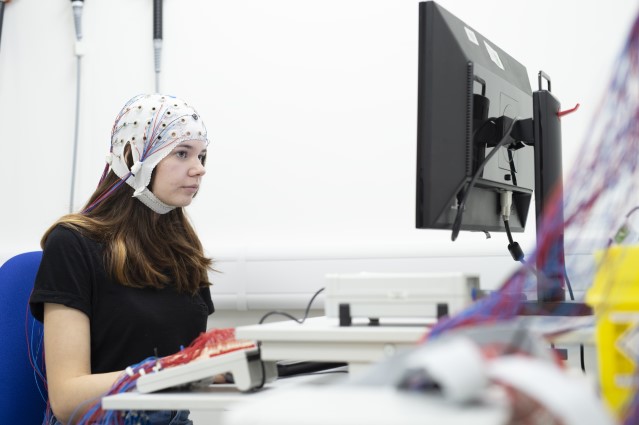Asking your opinion
Many of our studies will simply ask you to tell us a bit about yourself, tell us your opinions and preferences, or make decisions about things that you see or hear.
These studies might use interviews or pen-and-paper questionnaires where you answer some simple questions, or might take the form of a computer-based task where you see images/hear sounds and make responses using the keyboard about your experience.
Eye-tracking
Some of our studies use eye-tracking technologies (a small video camera that can record where you are looking) to see how quickly and easily you can find certain objects in a picture.
The School of Psychology has six state-of-the-art eye-tracking labs, including totally unobtrusive trackers (hidden into the computer monitor) that are perfect to test children, trackers that give us super-fast information on where you are looking on a computer screen or in real life, and even trackers that record your eye movements in a fully immersive virtual world.
EEG recording (brain waves)
In other studies, we use special equipment to record your brain waves (this is called EEG – a totally safe and easy way to watch your brain activity – we can even give you a picture!). EEG requires you to wear a special hat with wires attached to it.
To prepare you for the study, we will first squeeze a little bit of gel into the cap – this helps improve the signal that we see. The School of Psychology has two brand-new EEG labs.
